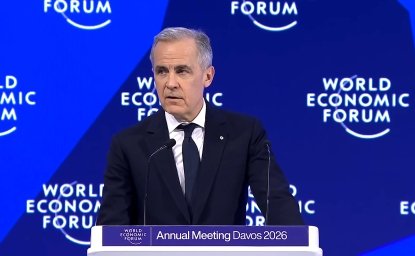
Xóchitl Gálvez Ruiz is a Mexican politician and tech entrepreneur who is the candiate for Mexico’s broad opposition coalition, Fuerza y Corazón por México. The daughter of an indigenous, abusive father and a mixed-race mother, Gálvez grew up in poverty in a small town in the state of Hidalgo, selling tamales and gelatin on the streets to support her family. Her indigenous roots are a clear part of her identity, as she frequently wears embroidered huipils (colorful indigenous blouses).
Gálvez left home at the age of 16 to travel to Mexico City, working as a telephone operator until she earned a scholarship to study computer engineering at the National Autonomous University of Mexico (UNAM). Upon graduation, she worked as an engineer and data analyst for several major companies, including the National Institute of Statistics, Geography, and Informatics (INEGI). In 1992, she founded High Tech Services, a company focused on advancing high-tech initiatives, specializing in the creation of cutting-edge projects, architectural design, security solutions, and telecommunications. Following this, she founded and assumed the role of general director at Operación y Mantenimiento a Edificios Inteligentes (Operation and Maintenance of Intelligent Buildings), more commonly referred to as OMEI , a company dedicated to the upkeep of intelligent infrastructures.
Gálvez’s entrance into the political arena came during the administration of President Vicente Fox (2000-2006) when she served as the head of the Office for the Development of Indigenous Peoples. She then established the National Commission for the Development of Indigenous People, later renamed the National Institute of Indigenous People, and held the position of the first director. In 2010, she registered as a member of the “Hidalgo Unites Us” coalition, composed of the PAN, PRD, PT, and Convergencia, the country’s traditional parties, to run as a candidate for the governor of the state of Hidalgo, an unsuccessful bid. In 2012, she ran for Senate as a member of the PAN, again, unsuccessfully.
Gálvez's first and only electoral victory occurred in 2015 when she won the election for the head of the government of Miguel Hidalgo, the wealthiest district in Mexico City, a position she held for three years. Then, Gálvez was appointed as a senator for the PAN on September 1, 2018, a position which she still holds. Although she represents the PAN, one of Mexico's more conservative parties, she supports more progressive causes, especially on topics such as the environment, LGBTQ+ rights, and abortion.
As a senator, Gálvez was known for making headlines through a series of attention-grabbing moves. For example, in December of 2022, Gálvez arrived to the Senate floor dressed up in a dinosaur costume to protest President Andrés Manuel López Obrador’s (AMLO) proposed electoral reform plan. In March of 2022, she presented AMLO with a LEGO house modeled after a house in Houston that was the center of a scandal involving one of his sons, claiming that since AMLO’s party Morena “played at governing,” they should like the toy.
What catapulted Gálvez to national recognition was an event that occurred in mid-June 2023. In one of his daily morning conferences in December 2022, President López Obrador had accused Gálvez of wanting to cancel social welfare programs, specifically for the elderly, based on her earlier comments about the programs being “insufficient.” Gálvez, in response, obtained a judicial decision from Judge Hugo Roberto Pérez Lugo, head of the Second District Court in Civil Matters in Mexico City, an order which allowed her to exercise her “right of response” – that is, to appear in the presidential morning conferences and respond to AMLO’s accusations.
Arriving at the National Palace in the early morning of June 12, 2023, on her bike (her preferred mode of transportation) Gálvez sought to exercise the right of response in front of a swarm of reporters and TV cameras from various news outlets. The president did not open the doors of the National Palace, arguing that he had a right to allow or deny admission into the morning press conferences. After an hour, she left with the promise that she would notify the judge that her right was not respected.
What followed this moment has been called ‘Xóchitl-mania’, both in the political and public realms. President López Obrador has been especially vocal about his disapproval of Gálvez, citing her inexperience and claiming that she represents the interests of the “oligarchy” and the business elites. Ironically, AMLO’s almost daily references to Gálvez in his morning conferences have catapulted her from a relatively unknown senator to a nationally recognized household name. Her approval ratings among the Mexican people have skyrocketed since she announced her candidacy in late June.
Gálvez’s popularity is due in large part to how she differentiates herself from the traditional politicians of Mexico through her humor and down-to-earth style with voters and constituents, which challenges the typical perception of the opposition parties. She is often seen riding her bike around Mexico City, wearing the traditional indigenous huipils, and she is able to converse comfortably, often using profane language, in political circles and with Mexicans on the streets. Her personality and background, as well as her stances on progressive issues, have helped attract a diverse set of voters to the opposition coalition, including groups that were once considered unreachable for the traditionally conservative parties.
In late August, after winning the internal elections, Xóchitl Gálvez was named the coordinator of the opposition coalition, Corazón y Fuerza por México. According to rules set by the National Electoral Institute (INE), no campaigning for the presidential election is allowed until November, but the expressed support by all of the parties within the Corazón y Fuerza por México coalition means that Xóchitl Gálvez is the de-facto opposition candidate, and she will face off against Claudia Sheinbaum, the de-facto Morena candidate, in next year’s presidential elections.
Author

Explore More
Browse Insights & Analysis
The Middle Power Play: Why Canada and Britain are Hedging on China


